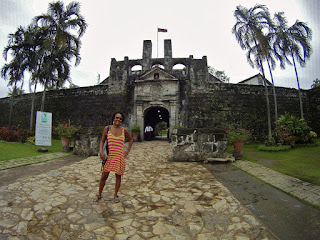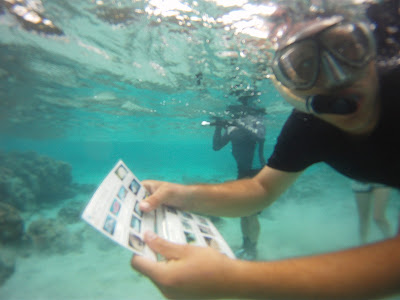The Downshifting for Earth Project (dfE) has the honor to share with all our visitors, friends, family and supporters our happiness for the accomplishment of the first year living with very low carbon footprint, while traveling in Oceania and South East Asia!
According to objectives established by the project kick off, we have indeed reduced drastically our carbon emissions from about 30 to somewhat like 4 ton/year/person (t/y/p). However, it's still about 100% ABOVE our target of 2 t/y/p!
Even with our efforts to reach that level, there are aspects of traveling that we could not reduce so far, to mention, fossil fuel consumption - although traveling mainly in sailing boats, engine is used when wind is not sailable -, our dependence on the bank services, consumption of industrialized, non-seasonal and/or imported groceries and the very calling socialization with friends in bars and restaurants.
We came to the conclusion that, to reach the targeted carbon emissions, we should either travel much less (or shorter distances) or off set another 2 t/y/p to compensate the displacements. Thus, the planning for the next period will consider these aspects.
As important as the concern on carbon emissions, we want share our joy on learning the great cultural aspects on the going. In places like New Zealand, Fiji, Vanuatu - consider the happiest people in the world, in 2006 -, Utupua Island in Solomons, we could experience living with the local communities that live sustained on values such as sharing, deep understanding and respect for the interconnection between human being and nature, simplicity, detachment to material, respect to the ancestors, truly hospitality. All that is commonly observed among most backcountry or islands inhabitants, who live all that with immense happiness.
We understood the greatness of traveling in real contact with genuine local people, what we could call meaningful tourism, where real cultural sharing takes place instead the usual sights-inn tourism, commonly demanding high carbon activities.
To end this first year of downshifted life, we want to indeed acknowledge Infinity Sea Tribe - a true life experience -, every single person who had visited our blog and gave us any word of incentive. Also, we want warmly thanks to our friends and family, who unconditionally and enthusiastically supported our project. Due to all this we can consider the dfE Project is a great success!
Our special words all those who - either had fed back us or not - somehow felt encouraged by us to reflect about personal carbon emissions, or in any sort of life changing project. We just want to emphasize that anyone can do anything. First steps are to be aware, calculate your carbon footprint, dream, than decide what kind of lifestyle would fit best to your beliefs! After that, be confident, coherent, plan and execute! It works!
As the summit of our 1st project anniversary, we'd like to share one of the most beautiful lessons we have learnt in this trip: The chief of the Sangava Village, in the remote Island of Emae, Shefa Province, in Vanuatu, wisely told us that, although Climate Change impacts are already happening on his Island and on his people - who have started being relocated due the sea level rise - he calls all his community to keep living in joy, without fear, just facing what has to be faced.
We found that lesson a tonic to our project and we agree that it fits any project or dream. Even when it requires paradigms breakage, extreme difficulties, the best attitude is face them all without fear, with joy.
We wish a much better treatment for the Earth, Nature and all Humans in 2012!
And fair winds to every one!
YES! We'll be very happy with you comments, praises, criticisms, feed back. All welcome!






































